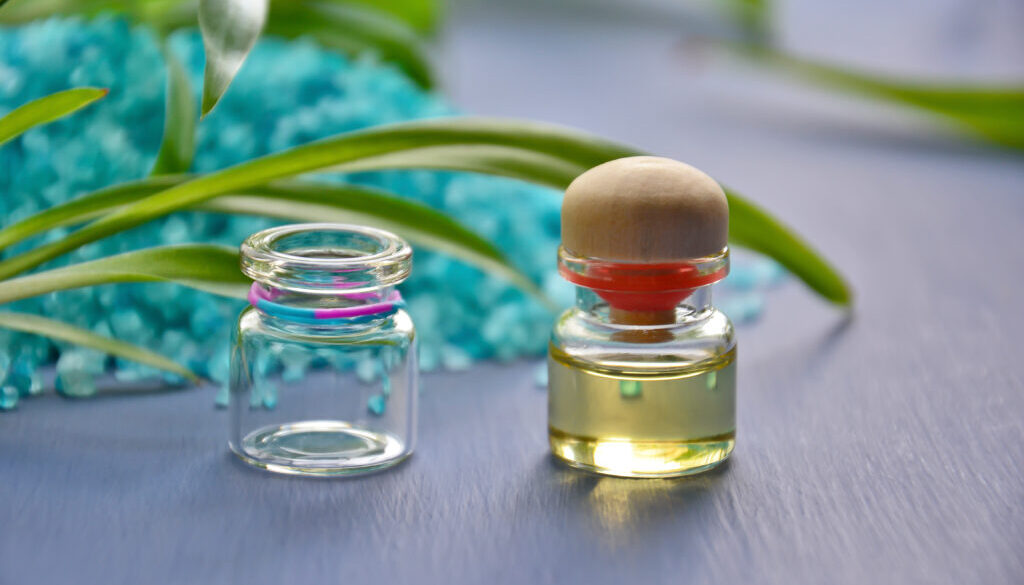Aromatherapy: The nose knows
By Aparna Mele MD
Freshly baked cookies, medicinal aftershave, rosemary from your grandma’s garden, clean laundry, good coffee, stinkbugs, a dish that made you sick – each of these aromas has the power to trigger specific memories, pleasant or aversive, that seem to transport us to a different place and time. Called the Proustian memory effect, the memories of odors, aromas, and fragrances have been shown to be far more detailed and longer lasting than memories created by other senses. Smells can trigger very powerful emotional memories largely because the brain regions that process smells, memories and emotions are intimately connected. In fact, smell is the only fully developed sense in a fetus in the womb, and the most developed in a child until about age 10 when sight dominates. Because smell and emotion are stored as one memory, childhood is an important period during which we create the basis for smells that we will love and hate for the rest of our lives.
The limbic system of the brain deals with emotions and memory and at the very front of this system is the olfactory bulb, which processes the chemical particles that enter our nose into a readable scent. Brain cells carry this information about the smell to the amygdala, the emotional processing center of the brain, and then to the hippocampus, which is the brain’s learning and memory center. Our individual human experiences then shape how we perceive scents and smells and this we can place emotions onto these aromas such as the positive feelings of warmth and nurturing when you smell your mother’s home cooking. There is some evidence for even a genetic preference for certain scents, such that you are more likely to be drawn to scents that evoke positive memories and emotions based on the neurological circuitry created by life’s experiences. Smells however can also trigger bad memories and reawaken past trauma, such as the smell of a bonfire for someone whose house burned down. These experiences are called odor-evoked autobiographical memories. No matter what aromas you are or are not drawn to, there is most certainly a reason hidden in your brain’s memory drive. This finding is especially suggested in studies that have shown improvement in Alzheimer’s dementia patients who undergo scent therapy, which involves patients sniffing an approximation of smells that combine scents from four odor categories, such as rose, clove, eucalyptus and lemon. The patient is required to smell the approximations for 10 minutes, twice a day for a three-month period. While the technique does not work on everyone, it has been shown to be effective in improving the smell abilities of 40% of patients.
And since smell and memory are so closely connected, losing your sense of small can actually negatively affect your memory. Losing your sense of small makes you lose the connection to certain memories and this is why a loss of smell can be an early sign of dementia, both Alzheimer’s and Parkinson’s diseases, and it can also contribute to depression.
Similarly, we can influence our emotional state by what we are smelling. Fragrance and scents can nurture emotional memories, and help brain function by triggering nostalgia, sharpening memory, improving self-image, evoke pleasant feelings, and promote overall well-being. Aromatherapy is the practice of using essential oils for therapeutic benefit. For centuries, ancient cultures in China, India, Egypt, and elsewhere incorporated aromatic plant components in resins, balms, and oils. These natural substances were used for medical and religious purposes and were known to have both physical and psychological benefits. This holistic healing treatment uses natural plant extracts to promote health and well-being, by using aromatic essential oils medicinally to improve the health of the body, mind, and spirit and enhance both physical and emotional health. Numerous studies have found that essential oils can both protect your long-term health and relieve symptoms of common maladies. They can help lower stress and anxiety, relieve pain, improve sleep quality, lift mood, sooth joints, treat headaches, alleviate side effects of chemotherapy, ease pain of labor, improve digestion, quell cravings and nausea, and boost immunity. Essential oils have even been demonstrated in lab studies to kill flu, E. coli, and cancer cells.
Many patients afflicted with COVID 19 who lost their sense of smell can attest to the fact that smell is also important for your perception of taste. Chewing your food releases aromas that travel from your mouth and throat to the nose. Without smell, we can detect only 5 basic tastes: sweet, salty, bitter, sour, and umami (savory). But our brains incorporate information from both taste and smell receptors to create the perception of many different flavors. Some people may think they’ve lost their sense of taste if food begins to taste bland or slightly “off.” But in fact, they may have lost their ability to smell.
Helen Keller, who was blind, said it best: “Smell is a potent wizard that transports you across thousands of miles and all the years you have lived.”
“Odors have a power of persuasion stronger than that of words, appearances, emotions, or will. The persuasive power of an odor cannot be fended off,
it enters into us like breath into our lungs,
it fills us up, imbues us totally. There is no remedy for it.”
― Patrick Süskind, Perfume: The Story of a Murderer



